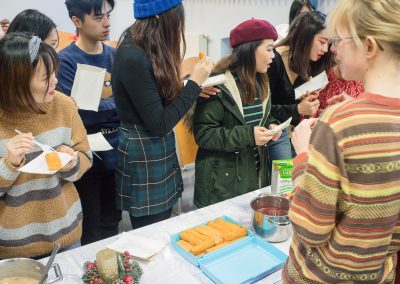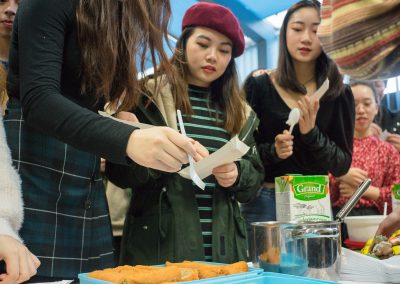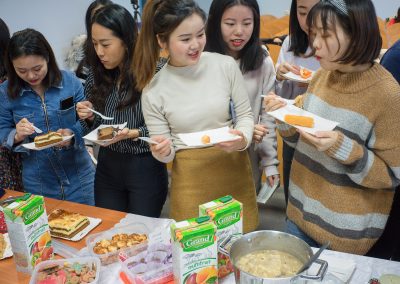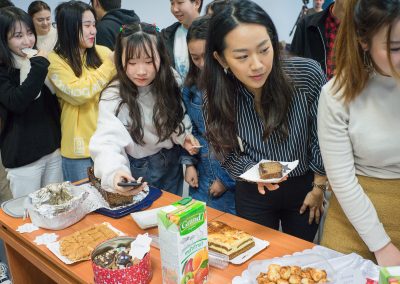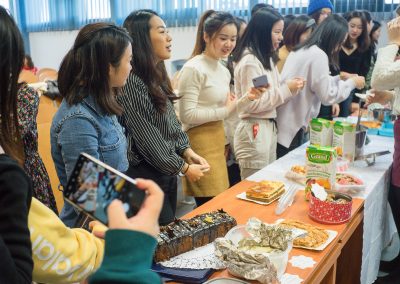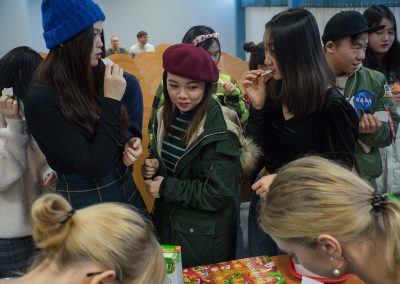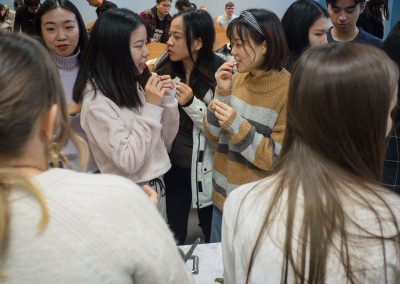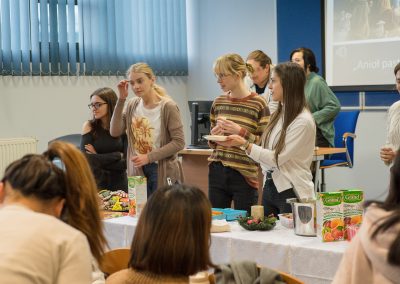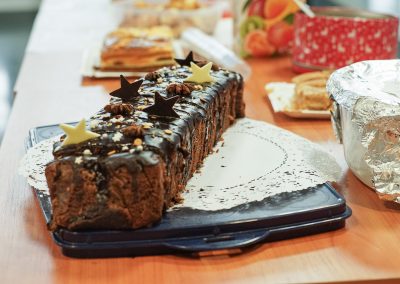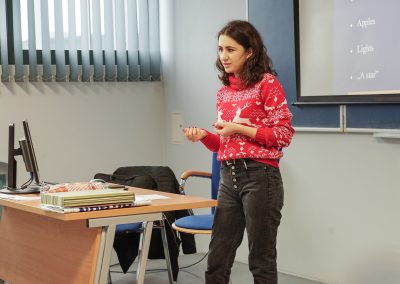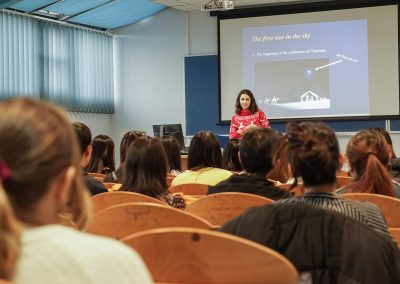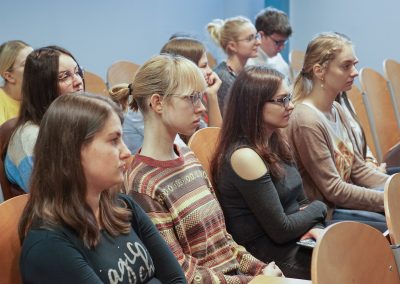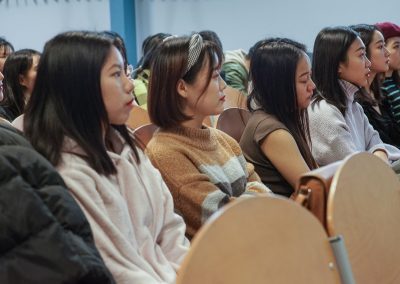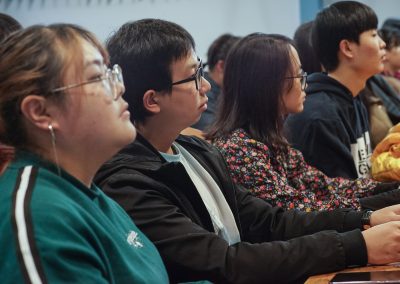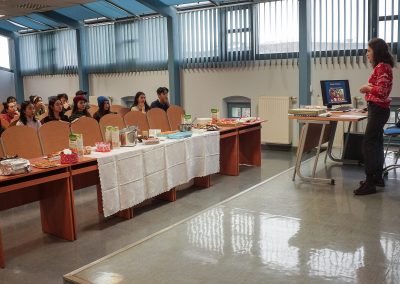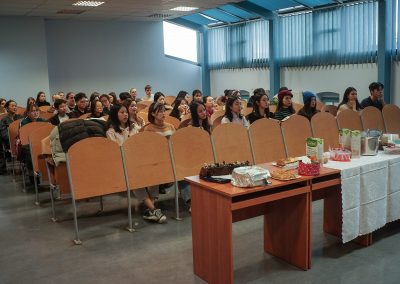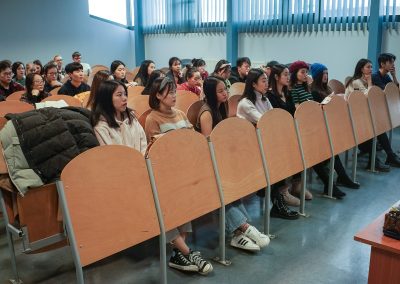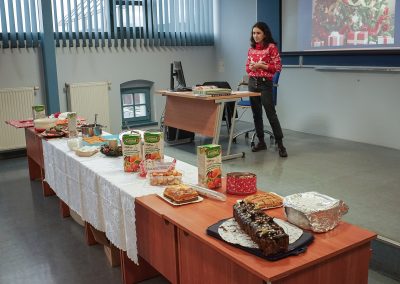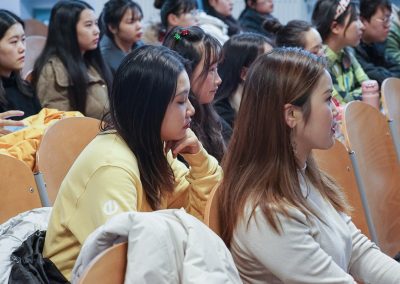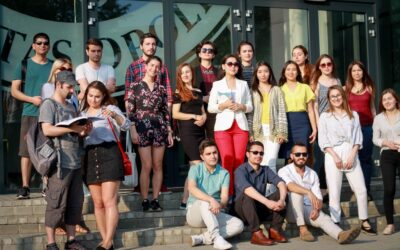The aim of the meeting was to familiarise our guests with the most specific aspects of Polish holidays, so in a short presentation they were told about the custom of sharing the Christmas wafer, about the symbolism of hay placed under the tablecloth, why we eat twelve dishes, and what an empty plate on a Christmas table means. There were also traditional dishes, unknown in China.
Where did the idea of organising the meeting come from?
– We have just returned with a friend from China, from Chengdu, where for a week we conducted language classes preparing future students to study at the UO, says Aleksandra Baryłowicz, MA, from the Faculty of Philology (English Philology). – During my stay there I noticed that although in China Christmas is not celebrated, the young generation is eager to introduce certain European customs and, for example, meetings with friends for dinner and exchanging small gifts are becoming more and more popular. Large cities, shops and shopping centres are decorated with lights and artificial Christmas trees. But when I asked the Chinese what they know about Christmas, they found it difficult to answer and give examples. Hence the idea to organise a Christmas meeting for our 40 students from China, who came this year in September and it is their first Christmas and winter in Poland.
The meeting was organised by students of the second year of English Philology, Spanish and Chinese specialities. -It is a great opportunity for them to present Polish traditions and make new acquaintances,” says Aleksandra Barylowicz. – Our students prepared everything fantastically: borscht, mushroom soup, dumplings, croquettes, gingerbread, gingerbread, apple pie, tangerines, cookies, and the whole feast was preceded by an interesting presentation on the symbols of Christmas prepared by Natalia Trzeja and the traditional breaking of the wafer.
Monday’s meeting was the first of its kind; we hope not the last. Students were delighted and very thankful for the opportunity to learn more about our traditions.
– In January we are planning the second part of this event – the Chinese New Year (Spring Festival) – one of the most important holidays in China – says Aleksandra Baryłowicz. – This time it will be the students from China who will prepare various dishes and presentations on how they celebrate this holiday.
